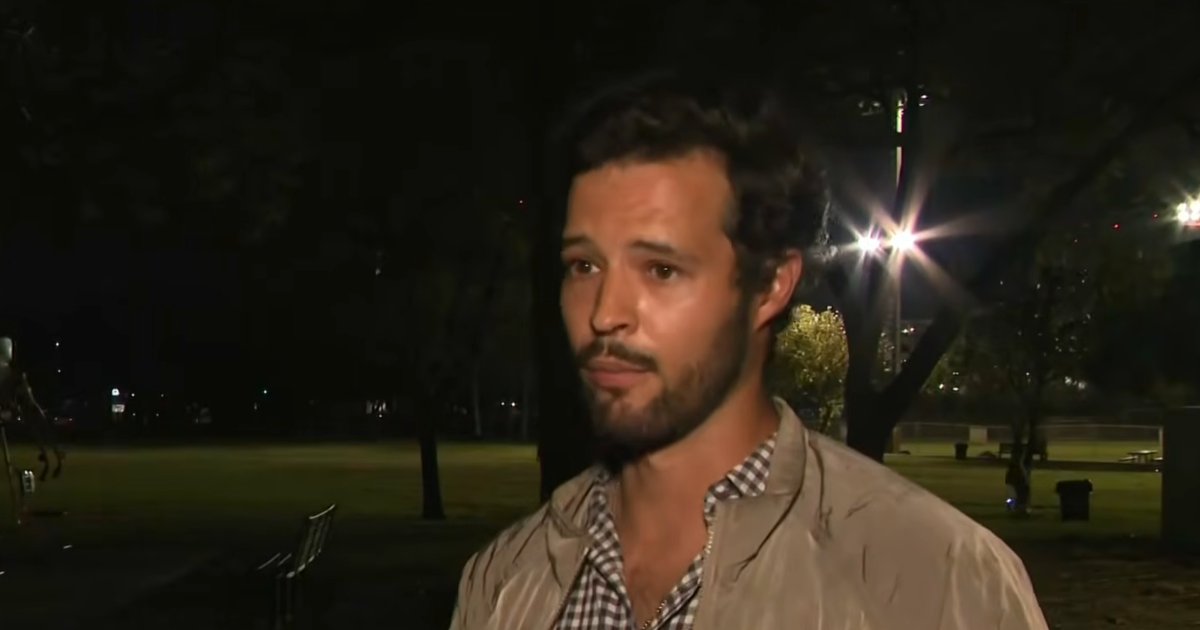S. Florida Delegation Preps For Syria Congressional Debate
MIAMI (CBSMiami) – As Congress prepares to debate whether or not to allow military action against the Syrian regime of Bashar al-Assad, representatives from South Florida have already started to stake out their positions on the issue.
The potential for military action came after the Assad regime allegedly used chemical weapons including sarin gas against its own people in the ongoing civil war in the Middle Eastern country. Secretary of State John Kerry made the allegation of sarin gas usage over the weekend.
Sarin gas is a deadly nerve agent that works by attacking the central nervous system paralyzing the muscles around the lungs. However, the claims of chemical weapons has not been definitively made by the international community leading some to question the U.S.' motives in pushing for military action.
President Obama has been making the case for military action in front of cameras and behind the scenes in Washington.
Senator Bill Nelson was one of the first Senators to demand military action against Syria's regime saying last week that "as far as I'm concerned, we should strike Syria today."
Representative Debbie Wasserman Schultz said she welcomed the President's decision to get Congressional approval as did Representative Alcee Hastings, both are Democrats.
"As a mother I am going to stand up for the children who were murdered in cold blood by their own leader," Representative Debbie Wasserman-Schultz said.
The congresswoman arrived back in South Florida, Monday, after attending a classified briefing on Syria.
She likened it to the Holocaust, where, she said, leaders turned the other cheek.
She pledges to not let that happen again. "Given our allies in the region like Israel, Turkey and Jordan and the possibility that they could be next if the United States doesn't have a certain and severe response, I think that response is essential," Wasserman-Schultz told CBS4's David Sutta.
Hastings, though, said if he wasn't completely convinced by the intelligence reports, he would not hesitate to vote against military intervention.
Republican Senator Marco Rubio said he supported the president's decision to ask for Congressional approval and said immediate debate on the issue should begin. However, he said military action should only be engaged when the U.S. is "pursuing a clear and attainable national security goal."
Republican Mario Diaz-Balart attacked the president calling his statement over the weekend, "Short and insufficient." Diaz-Balart continued, "Unfortunately, the President has failed to provide a coherent policy on Syria to date. His poorly conceived 'red line' unnecessarily leveraged U.S. credibility, and placed him in the regrettable position of either following through on the promised retaliation or confirming that his threat was a hollow one."
Congresswoman Ileana Ros-Lehtinen, who sits on the House Foreign Affairs committee, said what the President is asking for - he will not get from Republicans. Ros-Lehtinen explained "This is open ended. This is way too broad. This is giving all powers to the commander-in-chief without consulting in Congress what he feels is necessary and appropriate in connection with the use of chemical weapons or weapons of mass destruction."
Looking back at history, Ros-Lehtinen and Nelson both voted to authorize the use of military force on Iraq on intelligence that turned out to be incorrect. Hasting voted against using military force before the Iraq war.
A few years after the Iraq war began, Ros-Lehtinen told the Hill.com that it didn't matter if Iraq was directly involved in terrorist actions like 9/11, the war was justified because Iraq "hate America."
"Whether or not there is a direct link to the World Trade Center does not mean that Iraq is not meritorious of shedding blood," Ros-Lehtinen said defending her Iraq vote in 2004. "The common link is that they hate America."
The use of military force in Syria doesn't come without many potential issues. The risk of intervening in a civil war includes angering other countries that support Syria like Iran and Russia. Plus, it's becoming increasingly difficult to determine who used the chemical weapons.
There's also the risk of gas prices skyrocketing if the conflict begins to escalate in the region. In addition, if Congress overrules the commander-in-chief on a usage of military force, it could spark a Constitutional fight if the president decided to take the action on his own.
Dr. Dustin Berna, a Conflict Resolution and Political Science Professor at Nova Southeastern University said it won't be easy. "It's not that simple because other countries are involved. You have the Iranians backing the Shea Government. You have the Saudi Arabians backing the opposition. You have Islamic fundamentalist in there."
Dr. Berna believes many toes will be stepped on if the U.S. gets involved or sits on the sidelines. "Whoever wins this is going to have access to those chemical weapons so think about how frightening that is: Hezbollah having the chemical weapons or Al Qaeda having those chemical weapons," Berna said.
Reporter David Sutta asked, "Is there going to be a winner in this?" "No. There is not going to be a winner in this." Berna answered back. "What we are going to be getting involved in is this Sunni Shea divide which could be quite problematic and so I suspect President Obama is going to congress to share the blame if it gets out of hand." Berna surmised. He added "You can't solve the Shea Sunni problem overnight."
Later this week, the House Foreign Affairs committee will meet and give further update on just what is happening in Syria. Next week, the House and Senate will be back in Washington, D.C. It remains to be seen whether congress will be able to cross party lines to find a joint resolution.







